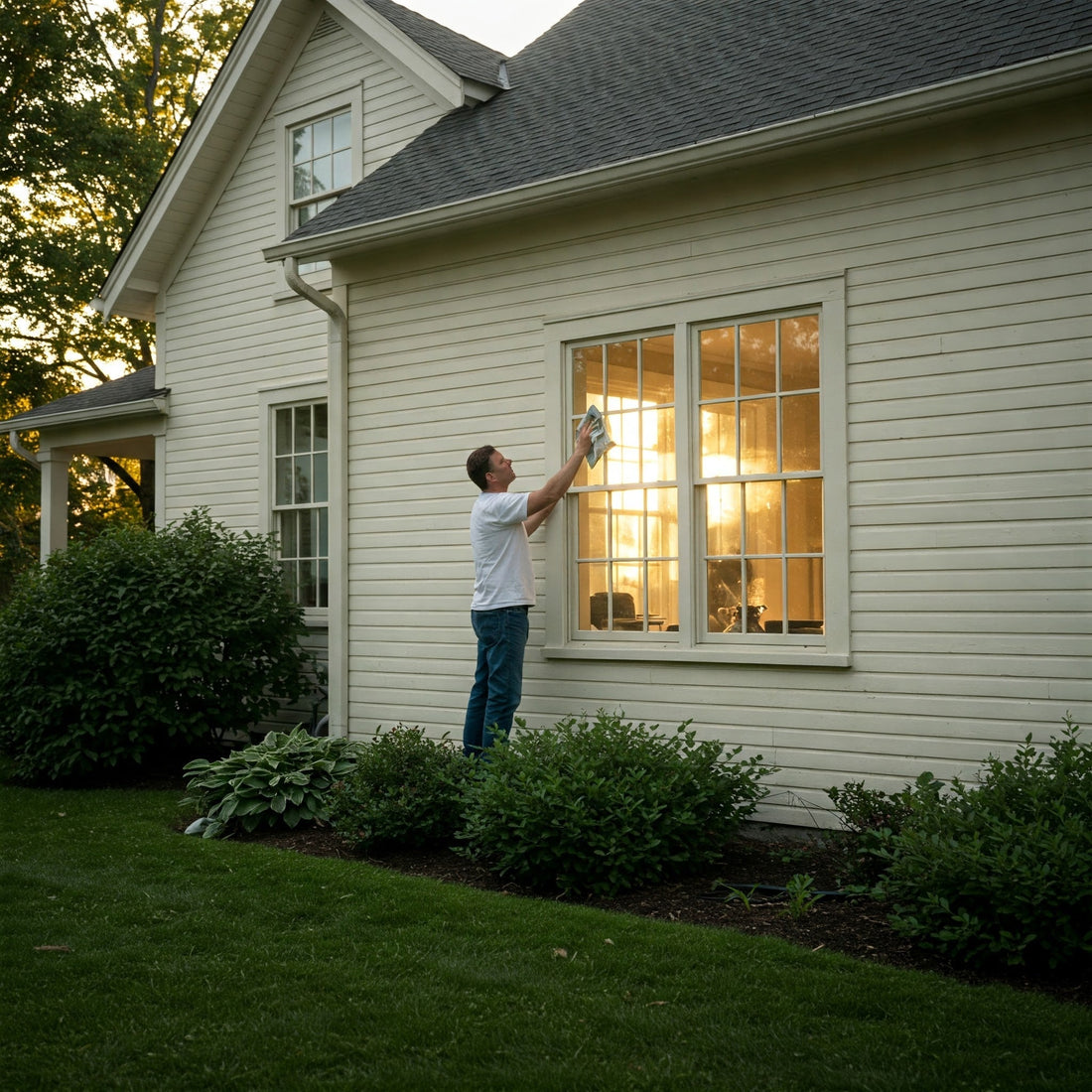
Can window cleaning scratch windows?
Share
Window cleaning is an essential part of maintaining a clean and clear home, but one common concern that homeowners may have is whether the cleaning process itself can damage or scratch the windows. After all, a scratched window can not only be unsightly but also reduce the effectiveness of your window’s ability to let in natural light and affect its overall appearance. So, can window cleaning scratch windows? Let’s dive into the factors that contribute to window scratching and how to clean your windows safely.
What Causes Window Scratching?
Before addressing whether window cleaning can cause scratches, it’s important to understand what typically leads to scratched windows. Window scratches usually occur when:
-
Using Abrasive Materials Harsh cleaning tools like steel wool, rough sponges, or abrasive pads can easily scratch the surface of glass windows. These materials may leave marks that are difficult, if not impossible, to remove without professional help.
-
Dirt and Debris on the Surface If windows are cleaned without first removing any dirt, dust, or debris, these particles can act like sandpaper on the glass. Rubbing or wiping the window with dirt still on it can cause tiny scratches over time. This is especially true if there’s gravel, hard minerals, or other gritty materials on the surface.
-
Old or Worn Out Cleaning Tools Old, worn-out cleaning cloths, squeegees, or brushes can have rough edges that might cause scratches when cleaning. Over time, the fibers can become stiff or frayed, increasing the likelihood of damaging the glass.
-
Incorrect Cleaning Technique Scratching can also occur if the wrong technique is used. For example, cleaning windows in a circular motion rather than using an up-and-down or left-to-right motion can result in uneven pressure and potential scratching.
-
Using Harsh Chemicals Some window cleaners contain harsh chemicals that, if left on the glass too long or not properly rinsed off, can cause damage. For example, ammonia-based cleaners can create streaks or leave a residue that, over time, may result in surface damage.
Can Proper Window Cleaning Scratch Windows?
While the cleaning process itself is unlikely to scratch windows if done correctly, using the right tools, technique, and cleaning agents is key to preventing damage. Here’s how you can clean your windows without causing scratches:
1. Choose the Right Cleaning Tools
The best way to avoid scratching your windows during cleaning is to use gentle, non-abrasive tools. Opt for:
-
Microfiber Cloths: These are soft and effective at trapping dirt and dust without scratching the glass. Microfiber is a great choice because it doesn’t leave lint behind and can clean without the need for harsh chemicals.
-
Soft Squeegees: A high-quality squeegee with a soft rubber blade can give your windows a streak-free finish without damaging the glass.
-
Soft Sponge or Cloth: Avoid using rough sponges or scrubbing pads. Instead, use a soft cloth or sponge to wash the windows gently.
2. Pre-Clean the Surface
Before you start cleaning with any kind of detergent, it’s a good idea to pre-rinse the window with water to remove loose dirt and debris. This step ensures that no gritty particles remain on the glass during the cleaning process.
3. Use Gentle Cleaning Solutions
You don’t need harsh chemicals to clean your windows. In fact, some commercial cleaners can leave a residue that may damage the surface over time. You can easily make your own window cleaner by mixing:
-
2 cups of water
-
1/4 cup of white vinegar
-
A few drops of dish soap (optional)
This solution is effective, safe, and gentle on the glass. Avoid using ammonia-based cleaners, as they can damage the glass over time and create streaks.
4. Apply the Right Technique
When cleaning your windows, always wipe in one direction, either up and down or left to right, to avoid rubbing dirt back into the glass. Using a gentle motion and avoiding excessive pressure will help prevent any scratching. Additionally, avoid cleaning windows on extremely hot or cold days, as temperature extremes can cause the glass to crack or become more susceptible to damage.
5. Don’t Forget the Frames and Sills
While focusing on cleaning the glass, don’t overlook the window frames and sills. Dust, dirt, or debris in the frames can end up on the glass and cause scratches when you clean. Make sure to clean the frames and sills before washing the glass.
What to Do If Your Windows Are Already Scratched?
If you find that your windows have already been scratched, there are a few things you can do to improve their appearance or even remove the scratches, depending on their severity:
1. Buff Out Minor Scratches
For very minor scratches, you may be able to reduce their appearance by buffing the glass with a soft cloth and some baking soda or a specialized glass cleaner. This can help polish the surface and make the scratch less noticeable.
2. Professional Repair
If the scratches are deep or if you want to restore the glass completely, it’s best to call a professional window repair service. They may be able to polish the glass or replace the pane if necessary.
3. Prevent Future Scratches
Moving forward, be sure to use proper cleaning techniques and tools to prevent further damage. Regular maintenance and cleaning can help keep your windows looking good for longer.
Conclusion
While window cleaning can scratch windows, it typically happens when the wrong tools, techniques, or cleaning products are used. By following the right practices—using non-abrasive cloths, pre-cleaning the surface, and applying gentle cleaning solutions—you can keep your windows spotless without causing any damage. So, next time you clean your windows, remember to be gentle, and your windows will remain clear and scratch-free!
